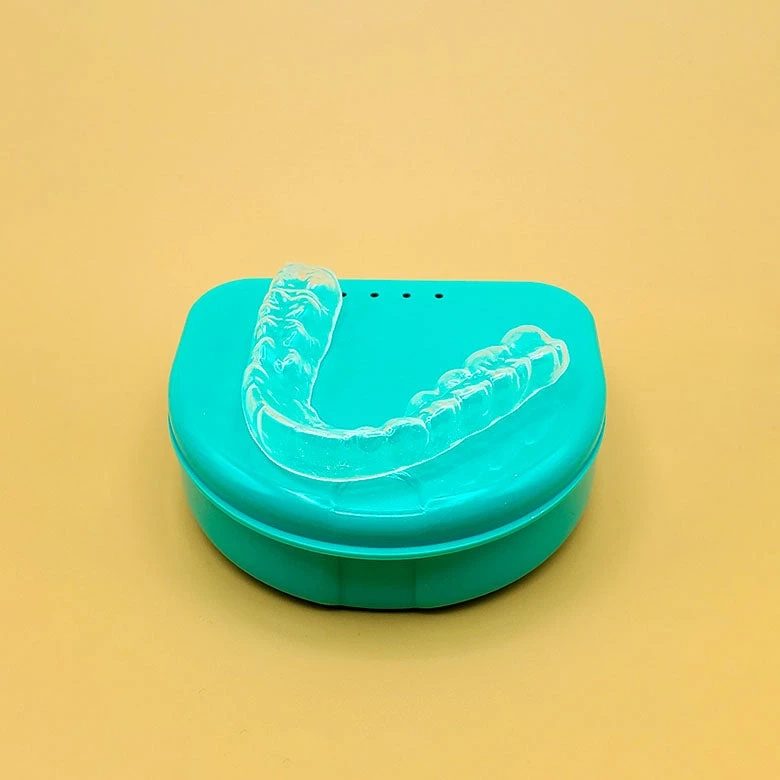As parents, one of our greatest concerns is ensuring the health and well-being of our children. Yet, certain issues can quietly sneak into their lives, leaving us perplexed and concerned. Daytime teeth grinding, known as bruxism, is one such matter that often flies under the radar. It's not just an issue that affects adults; children can also experience it.
Daytime teeth grinding may start as a seemingly harmless habit, but it affects your child in many ways. There can be many potential causes for it, and over time, this habit could have detrimental effects on a child’s dental development and even overall health.
As a parent, you’d ideally want to put a stop to it or find a way to manage it effectively. Here’s everything you need to know to ensure your child's dental health and well-being are safeguarded, day and night.
Understanding Daytime Teeth Grinding
Daytime teeth grinding, clinically known as bruxism, is a repetitive and involuntary habit where a person clenches, gnashes, or grinds their teeth while awake. Although commonly associated with adults, it can also affect children.
This condition often goes unnoticed but can have adverse effects on dental health and overall well-being. Daytime bruxism may stem from various causes, including stress, anxiety, dental misalignment, oral habits, medical conditions, or medication side effects.
Over time, it can result in tooth wear, sensitivity, jaw pain, and potential malocclusion. Managing daytime teeth grinding in children requires awareness, dental evaluation, and parental guidance to promote healthy dental development and reduce associated discomfort.
The Causes of Daytime Teeth Grinding
Stress and Anxiety
Just like adults, children can experience stress and anxiety. Academic pressures, social challenges, or family issues may trigger daytime teeth grinding as a coping mechanism.
Misaligned Teeth
Dental misalignment, where the upper and lower teeth don't meet correctly, can cause discomfort during the day. Grinding may occur as an attempt to find a more comfortable bite position.
Oral Habits
Thumb-sucking, pacifier use, or tongue thrusting can contribute to bruxism by altering the oral environment and creating pressure on the teeth.
Medical Conditions
Some medical conditions, such as allergies, ear infections, or even pinworm infestations, can lead to daytime teeth grinding as a response to discomfort or irritation.
Medications
Certain medications, especially stimulants used to treat conditions like attention deficit hyperactivity disorder (ADHD), can have bruxism as a side effect.
The Effects on Dental Development
Daytime teeth grinding can have several effects on a child's dental development and overall oral health:
Tooth Wear
The constant grinding can lead to tooth wear, flattening of the tooth surfaces, and even chipping in severe cases.
Tooth Sensitivity
As the enamel wears down, teeth can become more sensitive to temperature changes and certain foods.
Jaw Pain and TMD
Bruxism can strain the jaw muscles and temporomandibular joint (TMJ), potentially leading to jaw pain and temporomandibular disorders (TMD).
Malocclusion
In some cases, prolonged bruxism can contribute to the development of malocclusion, where the teeth do not align properly.
Parental Guidance for Managing Daytime Teeth Grinding
If you suspect or observe daytime teeth grinding in your child, here are some practical steps and guidance to help manage the issue:
Observe and Document
Begin by keeping a journal to track when and how often your child grinds their teeth. Note any triggers or patterns that might be associated with the behavior.
Stress Management
If stress or anxiety appears to be a factor, work on creating a supportive and stress-free environment for your child. Open communication and stress-reduction techniques like deep breathing or mindfulness exercises can be helpful.
Dental Evaluation
Schedule a dental appointment for your child. A dentist can assess the extent of tooth wear, check for malocclusion, and provide recommendations for treatment or intervention.
Orthodontic Consultation
If misaligned teeth are contributing to the problem, consult with an orthodontist. Orthodontic treatment may be necessary to correct alignment issues.
Breaking Oral Habits
If thumb-sucking, pacifier use, or other oral habits are present, work on breaking these habits with positive reinforcement and encouragement.
Medication Review
If your child is taking medications that could cause bruxism, consult with their healthcare provider to explore alternative treatments or adjustments to the medication regimen.
Stress Reduction Techniques
Teach your child stress reduction techniques such as relaxation exercises, yoga, or engaging in calming activities.
Monitor Diet
Ensure your child's diet is free from excessive caffeine and sugar, which can contribute to anxiety and exacerbate bruxism.
Positive Reinforcement
Encourage your child with positive reinforcement and praise for their efforts to manage their bruxism.
Mouthguards
Sometimes, a dentist may recommend a custom-made mouthguard for daytime use. These guards provide a protective barrier between the teeth and can help reduce the effects of grinding.
Where To Find Dental Guards For Children
Daytime teeth grinding in children is a concern that many parents may encounter. While it can affect dental development and oral health, practical steps can be taken to address the issue. Parents can help their children manage daytime teeth grinding and promote overall oral health and well-being by observing, seeking dental evaluation, and implementing stress reduction techniques.
One measure that you can choose as a part is a dentist-recommended clear custom night guard. These can help curb the teeth-grinding and keep its detrimental effects away from your child. We particularly recommend choosing custom Dentist recommended Night Guards for teeth grinding like the ones offered by Clear Comfort Night Guards. It’s an online store that sells night mouthguard for sale that are custom-designed for every user.


